
General_English_Semester_1_New_LAST_LAST_doc
.pdf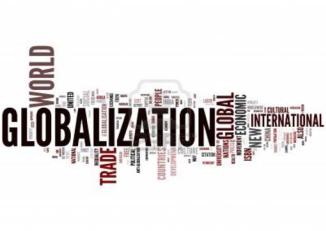
Project work
Try to ask your group mates as many similar questions as possible which emphasize that we are all global citizens.
Do you embrace change? Or do you resist change?
Do you own a mobile phone or refuse to conform to new technologies?
Do you celebrate freedom of speech? Or do you oppose freedom of speech?
Whether we like it or not we all belong to the global community!
Unit 2. Globalization
2.1 What is Globalization?
Lead-in
When you wake up in the morning – do you
turn on your Sony Radio;
wear your Levi’s jeans;
apply your French perfume? Or at lunchtime - do you
visit McDonalds? Or in the afternoon - do you
play sport in your NIKE shoes or
watch Hollywood movies? Then at bedtime - do you
look through E-bay items, searching for a stylish but cheap clothes;
talk to your friends who are in the US on Work&Travel program via Skype or
listen to your favourite music on your Apple iPOD?
If you can answer yes to any of these activities then you are a willing or unwilling member of the global community!
Reading, Grammar and Vocabulary
1. Read the text for general understanding. What is the main idea of the text?
Development or degradation? Good or bad? Bliss or bane? What is globalization actually up to? Let us shed light on it all through this information.
Let's face it. People are moving from one country to another, trade restrictions are being reduced, domestic markets are opening up for foreign investments, telecommunications are being considerably improved and the countries that initiate innovations are passing on their know-how to the countries which do not. In short, people are no longer bound by territorial restrictions, unless of course, there are security issues. It's no longer about 'my country
and me’; it's now more like, 'the world and us'. Businesses are expanding, horizons are widening, and people are coming together to form one homogeneous unit – HUMANITY!
Globalization has rocked our conservative and predictable lives. Call it liberalization, international integration, or broad-mindedness... it has inspired the world with its power and potentiality. If one is asked to give a foolproof answer what it is, it can be said that, globalization is a process by
73

which people, companies, administrations, and governments all over the world can integrate and interact. It is directed by international business and trade, and effectively assisted by information technology. However, globalization does not restrain itself to integration of economies on international basis. There is more to it. Let us begin with defining it.
Definition: Globalization can be defined as an integration of economy, finance, trade, and communications from a world-wide perspective, in order to establish a successful economy on global basis.
The boom of globalization has opened gates for economies both nationally and globally. The last three decades saw many governments adopted the systems of free markets, thus, maximizing their own potential and opportunities for international business as well as investment. What's more, as a result of globalization limitations to business and trade of goods and services across the world are eliminated.
Technology, being one of the chief drivers behind globalization, has transformed the economic life in such as way that people all over the world have new ways to recognize and value the economic opportunities put forth for them. Globalization has stimulated increasing employment, cash flows, development of cultural contacts, foreign trade, and environmental as well as social awareness among people. However, like it's said that there are always two facets to a coin, globalization entails a few negatives too, that are equally considerable. With equal advantages and disadvantages of globalization, it is hard to arrive to a conclusion whether it is a bliss or a bane to the world.
2.Point out all international words. Check if they have got similar meaning in Russian.
3.Read the text below and try to answer the questions of the first paragraph.
4.Match the words from the text with their synonyms
1)domestic |
a) |
understanding |
2)bliss |
b) |
expected |
3)bane |
c) |
matter, thing |
4)homogeneous |
d) |
technology |
5)foolproof |
e) |
identical |
6)predictable |
f) |
local |
7)awareness |
g) |
curse, destruction, evil |
8)know-how |
h) |
happiness; |
9)issue |
i) |
simple and reliable (contextual) |
5. Complete the sentences with the words from the previous exercise.
1)Which of the following is the most important _______ facing the country today? The economy? The federal budget deficit? Health care? The threat of terrorism?
2)Our company provides online cultural training for creating cultural ______ helping global team leaders and international businesses understand differences in national mentality.
3)If you are looking for ways to remember things better try these 25 _____techniques to improve your memory.
4)Many people think that social networking is a ______for teenagers because they live in virtual reality.
5)Central bank plays a key role in the _________ financial market.
6)This innovation is a strategic _________in the sphere of space exploration.
7)Success is ________if you know how to deal with people properly.
8)No living language is _______. Language use certainly differs in different situations, with different speakers, in different locations.
9)It’s __________to achieve your lifetime dream!
Words: foolproof, issue, homogeneous, domestic, awareness, bane, predictable, bliss, know-how.
74
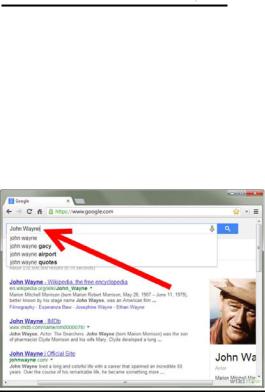
Grammar spot
Present Perfect is used to indicate a link between the present and the past. The time of the action is before now but not specified, and we are often more interested in the result than in the action itself. F.ex. The invention of the wheel has changed the world forever.
Note: One should bear in mind that there may be a verb tense in your language with a similar form, but the meaning is probably NOT the same.
1.In the text there are some sentences where Present Perfect is used. Find them and try to reproduce. Translate.
2.Use the Present Perfect Tense (both in passive or active) to emphasize the impact of some actions or events on the present moment.
1)I-Phones (to change) radically … our lives. To date, more than 217 million iPhones (to sell) …, and they're being used by construction workers to read blueprints, doctors to diagnose patients, governments to improve services and parents to quiet their kids in restaurants.
2)There is no question that internationalization, and particularly international student mobility, (to transform) … the higher education landscape in the last decade.
3)Credit cards (to simplify) dramatically … the process of making in-person and online purchas-
es.
4)In an era of globalization, AIESEC’s programs (to help) … thousands of young people around the world to develop a broader understanding of cultural, socio-economic and business issues.
5)Grants (to enable) … many students to realize their dream of a higher education and being independent.
Improve your study skills
How do you usually look for information on-line? Read the following recommendations. Using your personal experience add some other points to the list below.
How to Find Information Online
(from http://www.wikihow.com/Find-Information-Online
Many people have been frustrated by searching up a simple query online and not getting right results. But the World Wide Web is a big place! It will definitely have anything you're looking for. Unfortunately, sometimes that's just the problem: there are too much results. There are a lot of clever ways of finding information online without getting frustrated over search engines.
Steps
3.Try simple search queries. For example, if you're looking for an old actor who's not popular today, type in his or her name in a search engine such as Google. If your results are useless, move on to other search engines (a complete list of good engines in external links section).
75
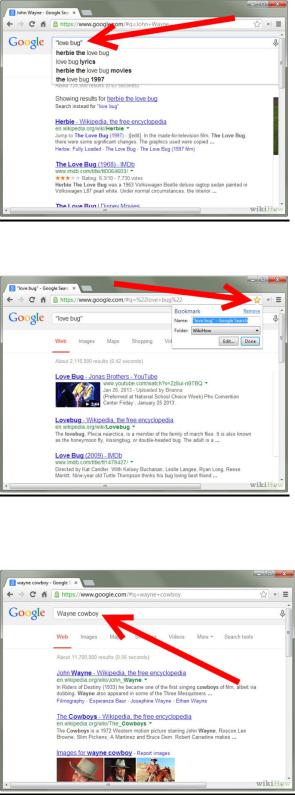
4.Learn some searching shortcuts. This way, you don't have to use advanced search all the time. For example, on Google, if you're looking for a specific phrase, type the phrase inside the quotes ("the phrase") and search it. Most of search engines have this option.
5.Be sure to bookmark useful results. For example, if you're looking for something and you find another thing that is totally different, but you happen to find it interesting, bookmark the site. Maybe it has lots of other good content and when you are looking for something related to that topic, you have it safely stowed away in your bookmarks.
6.Try alternate words. Use synonyms and put a query in a different form. You might find something exciting.
76
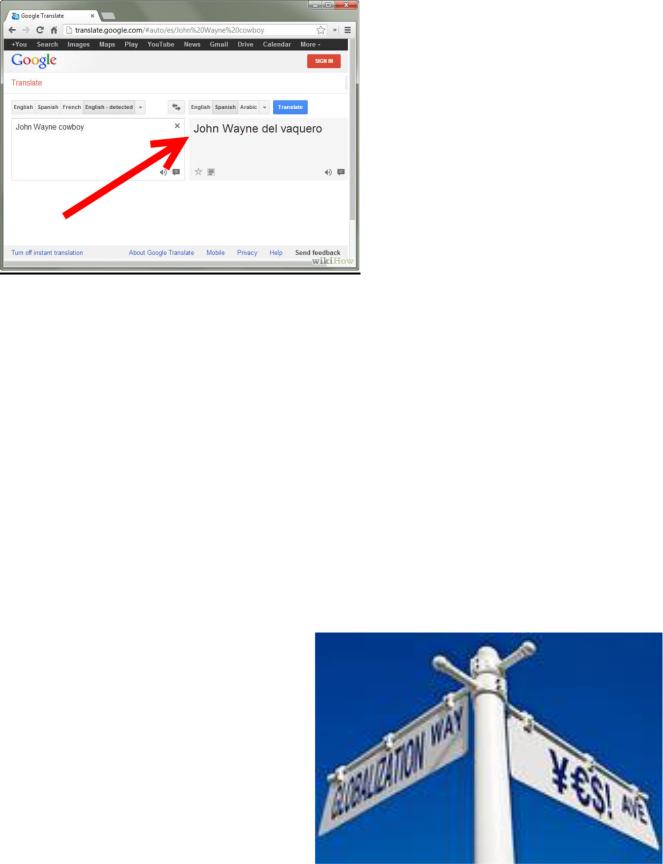
7.Search in different languages. Google translator is a good tool to translate some web-pages and text. This lets you search the internet in different languages and then have the results translated into English.
Practice
1. Summarize what changes happen to the following things from the list given below. You may develop the list using the information from the Internet.. Your own ideas are welcome!
trade restrictions and limitations;
innovations;
domestic markets;
telecommunications (as well as other means of communication);
money in the form of investment and transactions;
usual people;
businesses and businessmen;
horizons (opportunities and prospects).
2.2 Is Globalization a Benefit or a Problem?
Lead-in
Define the word “globalization”. Refer to your own experience. Exchange opinions.
List its advantages and disadvantages.
Reading and Vocabulary
Globalization is a very controversial issue today. Opinions vary considerably over its pros and cons. You can find some of them below. Read the text in detail.
77
PROs
Goods and people are transported with ease and speed;
the possibility of war between developed countries decreases;
free trade between countries is stimulated;
competition rises thus reducing prices and improving the quality of production;
global mass media connects all people all over the world;
as the cultural barriers reduce, the global village dream becomes more realistic;
there is a spread of democratic ideals;
growth of interdependence of the nation-states;
developed countries can invest in developing ones;
flexibility of corporations to operate across borders rises;
the communication between individuals and corporations in the world increases;
environmental protection in developed countries grows.
CONs
Outsourcing of manufacturing and white-collar jobs to the Third-World with a low labour cost;
increase in activities such as child labour and slavery;
growth of terrorism and criminality;
ecological problems, especially in developing countries – these areas turn into garbagedumps where all industrial waste is accumulated and pollution levels are sky-high;
spread of consumption junk food as fast food chains like McDonalds and KFC are expanding fast all over the world;
poverty in developing countries rises;
spread of deadly viruses and diseases like AIDS on a global scale;
environmental degradation and devastation of natural reserves of the planet Earth.
EFFECTS OF GLOBALIZATION
Improvement in the information flow between geographically remote locations;
the global common market has a freedom of exchange of goods and capital;
there is a broad access to a range of goods for consumers and companies;
worldwide production markets appear;
free circulation of people of different nations leads to social benefits;
global environmental problems like cross-boundary pollution, over fishing on oceans, climate changes are solved by international discussions;
more trans-border data flow using communication satellites, the Internet, wireless telephones, etc.;
international criminal courts and international justice movements are launched;
the standards applied globally like diplomas, patents, copyright laws and world trade agreements increase, so documents, authorized by one country are quite often recognized in another;
international travel and tourism increases;
multiculturalism, a concept that emerged from globalization, maintains different cultures and promotes their social linking;
multilingualism develops, as every society has its own cultural identity. People learn foreign languages and lifestyle of other cultures;
worldwide sporting events like the Olympic Games and the FIFA World Cup are held
enhancement in worldwide fads and pop culture;
local consumer products are exported to other countries;
78

immigration between countries increases;
cross-cultural contacts grow and cultural diffusion takes place;
there is an increase in the desire to use foreign ideas and products, adopt new practices and technologies and be a part of world culture;
free trade zones are formed having less or no tariffs;
capital control is reduced.
2.Match the words from different columns to make collocations. Reproduce the information from the text where these word combinations are used. Make your own sentences with these collocations.
|
VERBS (with prepositions) |
|
NOUNS |
1) |
turn into |
a) |
a global scale |
2) |
accumulate |
b) |
new practices and technologies |
3) |
recognize |
c) |
international movements |
4) |
spread on |
d) |
discussions |
5) |
stimulate |
e) |
a garbage dump |
6) |
adopt |
f) |
diplomas, patents, agreements |
7) |
solve by |
g) |
free trade |
8) |
launch |
h) |
waste |
9) |
export |
i) |
products. |
3. Explain in English by matching A and B parts. Use them in the sentences of your own.
|
A |
B |
1) |
outsourcing |
a) unhealthy food which has little vitamins and minerals and |
|
|
contains high level of calories from fat |
2) |
a white collar job |
b) something that comes into fashion and becomes trendy very |
|
|
quickly |
3) |
junk food |
c) system under which people are treated as property to be |
|
|
bought and sold, and are forced to work |
4) |
slavery |
d) the act of using, or promoting the use of, multiple lan- |
|
|
guages, either by an individual speaker or by a community |
|
|
of speakers |
5) |
multiculturalism |
e) a position for an educated specialist with a diploma which |
|
|
allows earning high average salaries and not performing |
|
|
manual labour at work |
6) |
multilingualism |
f) a contract with another company or person to perform a |
|
|
particular function |
7) |
fad |
g) a conception which means that different people have their |
|
|
own cultural beliefs and they happily coexist, respect dif- |
|
|
ferent values and ethics. |
4. The words given below are the active vocabulary that is necessary to speak about globalization. Study them and make up a chain story with your group mate using these words. For example:
Student A: Communication plays an important role in modern society
Student B: Modern society provides a lot of possibilities for cooperation in educational sphere.
79

Communication, society, international tourism, satellites, a broad access to, competition, labour cost, poverty, barriers, benefits.
5. Scan the text about pros, cons and effects of globalization once again. Say whether you agree with every single point or not. Use the following conversational clichés:
AGREEMENT |
PARTIAL AGREEMENT |
DISAGREEMENT |
I think it’s totally right that … |
I agree with that up to a point, |
I disagree because… |
I agree that … |
but… |
I am afraid I can’t agree with |
Yes, indeed. |
That's quite true, but… |
you. |
I think you are entirely right. |
That makes sense; however… |
The problem with that is… |
It appears to me to be true. |
It's a good idea to think that …, |
The way I see it… |
That's just what I think. |
but… |
I'm against it because… |
Exactly. I share the opinion |
|
Instead, I think that… |
that … |
|
I object to … |
|
|
I'm afraid, I don't share the |
|
|
opinion that … |
Practice
1. Answer the questions. Use the ideas from the previous text.
1)Has globalization affected
your country;
your city;
your college life;
your family life;
you personally? How then?
2)Think about changes in recent years in
education;
job opportunities;
culture;
fashion;
ideas.
3)Do you think your country needs to be protected from the effects of globalization?
4)Would you support globalists or anti-globalists? Give your reason.
Improve your study skills Developing writing strategies
Developing writing strategies
1. Study the information below.
As we live in an information society people tend to spend a lot of time on virtual communication where they express their views, opinions, and attitudes by posting them in their blogs.
A blog (also called a weblog) is a website consisting of entries (also called posts) appearing in reverse chronological order with the most recent entry appearing first (similar in format to a daily journal). Blogs typically include features such as comments and links to increase user interactivity.
As the Internet has become more social, blogs have gained in popularity. Today, there are over 100 million blogs with more entering the blogosphere everyday. Blogs have become more than online diaries. In fact, blogging has become an important part of the online and offline worlds with popular bloggers impacting the worlds of politics, business and society with their words.
The best way to post involves breaking out the main points of your message and creating a list of everything you want to include, in the order you will address it. By creating a traditional outline, it helps you work out the flow of your post and organizes thoughts in a logical manner.
2. To learn how to start a blog go to http://startbloggingonline.com/
80
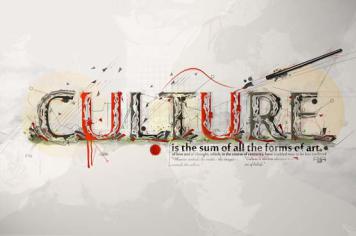
3. Write a post in your blog where you reveal the necessity of international communication and argue with an anonymous anti-globalist who has made an aggressive comment about your resent message.
Project work
Make up a PowerPoint presentation about globalization in modern world. Dwell upon the following ideas:
history
conception
advantages and disadvantages
opportunities and threats.
Module 3. Life and Culture
Unit 1. Defining Culture
Lead-in.
What do you think about the importance of learning about other cultures in today’s multicultural Global Village?
What do you think Global Village is ?
What is culture? Can you give any definitions on the spot?
What is the first thing that comes to your mind when you hear the word “CULTURE”? Music? Art? Literature? Cultural patterns of behavior?
Are beliefs and values shared by people belonging to one and the same cultural community? Anything else?
What does this word mean personally to you?
Reading and vocabulary
WHAT CULTURE IS
1. The quotations reflecting different points of view on what culture is are presented in this part. While reading try to identify the key words, related to the concept “culture”, paying attention to the word combinations in bold. Compare
your list with your partners’ lists and decide what should be included into this list by all means. Ground your decision.
“What is culture? I believe, it is the way of life of a particular society or group of people, including patterns of thought, beliefs, behavior, customs, traditions, rituals, dress, language, as well as art, music and literature”. (Elizabeth Primrose)
“Culture is the collective programming of
the mind which distinguishes the members of one group from another”. (Geert Hofstede)
“Very often when we use the word "culture", we mean the customs, beliefs, art, music and add the other products of human thought which were made by a particular group of people at a particular time”. (Adam Cotte)r
81
“Culture, the acquainting ourselves with the best that has been known and said in the world, and thus the history of the human spirit”. (Matthew Arnold
“Culture is the shared set of assumptions, values, and beliefs of a group of people by which they organize their common life”. (Gary Wederspahn)
“Culture is the system of information that codes the manner in which the people in an organized group, society or nation interact with their social and physical environment”. (Psychology textbook)
“Culture consists in patterned ways of thinking, freezing and reacting. The essential core of culture consists of traditional ideas and especially their attached values”. (Clyde Kluckhohnz)
“Culture consists of concepts, values, and assumptions about life that guide behavior and are widely shared by people”. (Richard Brislin)
“Culture is an integrated system of teamed behavior patterns that are characteristic of the members of any given society. Culture refers to the total, way of life for a particular group of people. It includes what a group of people thinks, says, does and makes — its customs, language, material artifacts and shared systems of attitudes and feelings”, (Robert Kohls)
“Culture refers to the experience, knowledge, values, and behaviors of any one group of people”. (Carol Archer)
“Culture is a complex concept, with many different definitions, But, simply put, "culture refers to a group or community with which we share common experiences that shape the way we understand the world. It includes groups that we are born into, such as gender, race, or national origin. It also includes groups we join or become part of. Jot example, we can acquire a new culture by moving to a new region, by a change in our economic status, or by becoming disabled. When we think of culture this broadly, we realize we all belong to many cultures at once. In a world as complex as ours, each of us is shaped by many factors, and culture is one of the powerful forces that acts on us. In other words, culture is central to what we see, how we make sense of what we see, and how we express ourselves”. (Marcelle E. DuPraw and Marya Axner)
“Culture is but the fine flowering of real education, and it is the training of the freezing, the tastes and the manners that makes it so”. (Minnie Kellogg)
“Culture is everything. Culture is the way we dress, the way we carry our heads, the way we walk, the way we tie our ties — it is not only the fact of writing books or building houses”. (Aime Cesair)
“Culture is to ''know the best that has been said and thought in the world."(Matthew Arnold)
2. Read the following interpretation of the concept “culture”. It is given in one of the Russian reference books. Compare with the definitions above. Point out differences and similarities.
Культура (от латинского слова «CULTURE» -возделывание, почитание, воспитание, образование, развитие) – исторически определённый уровень развития общества, творческих сил и способностей человека, выраженный в типах и формах организации жизни и деятельности людей, в их взаимоотношениях, а также в создаваемых ими материальных и духовных ценностях.
(Популярный энциклопедический словарь.- М.:Научн, изд-во: Большая Российская энцикло-
педия, 1999)
82
